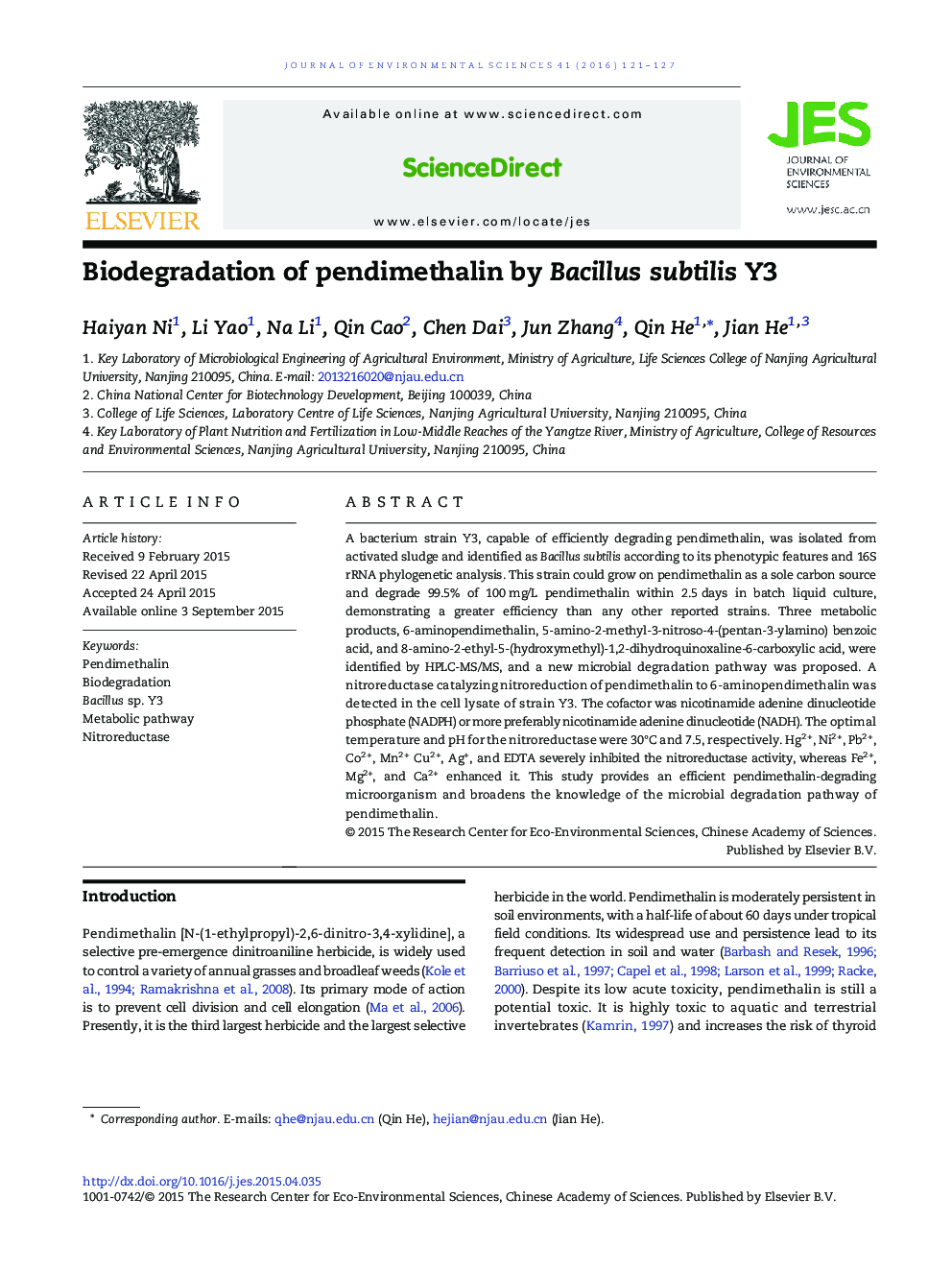| کد مقاله | کد نشریه | سال انتشار | مقاله انگلیسی | نسخه تمام متن |
|---|---|---|---|---|
| 4453700 | 1620812 | 2016 | 7 صفحه PDF | دانلود رایگان |

A bacterium strain Y3, capable of efficiently degrading pendimethalin, was isolated from activated sludge and identified as Bacillus subtilis according to its phenotypic features and 16S rRNA phylogenetic analysis. This strain could grow on pendimethalin as a sole carbon source and degrade 99.5% of 100 mg/L pendimethalin within 2.5 days in batch liquid culture, demonstrating a greater efficiency than any other reported strains. Three metabolic products, 6-aminopendimethalin, 5-amino-2-methyl-3-nitroso-4-(pentan-3-ylamino) benzoic acid, and 8-amino-2-ethyl-5-(hydroxymethyl)-1,2-dihydroquinoxaline-6-carboxylic acid, were identified by HPLC-MS/MS, and a new microbial degradation pathway was proposed. A nitroreductase catalyzing nitroreduction of pendimethalin to 6-aminopendimethalin was detected in the cell lysate of strain Y3. The cofactor was nicotinamide adenine dinucleotide phosphate (NADPH) or more preferably nicotinamide adenine dinucleotide (NADH). The optimal temperature and pH for the nitroreductase were 30°C and 7.5, respectively. Hg2 +, Ni2 +, Pb2 +, Co2 +, Mn2 + Cu2 +, Ag+, and EDTA severely inhibited the nitroreductase activity, whereas Fe2 +, Mg2 +, and Ca2 + enhanced it. This study provides an efficient pendimethalin-degrading microorganism and broadens the knowledge of the microbial degradation pathway of pendimethalin.
Figure optionsDownload as PowerPoint slide
Journal: Journal of Environmental Sciences - Volume 41, March 2016, Pages 121–127